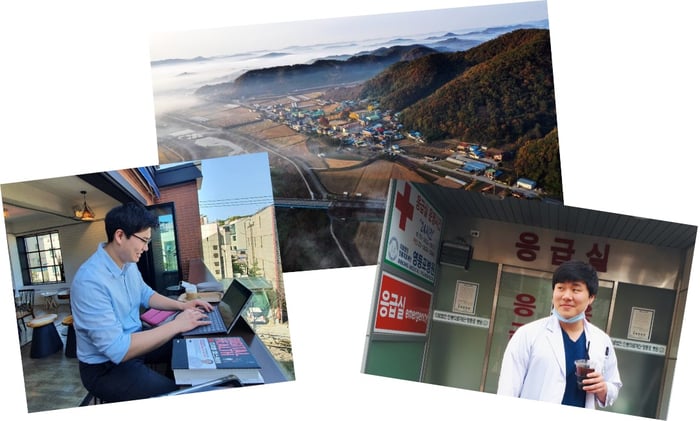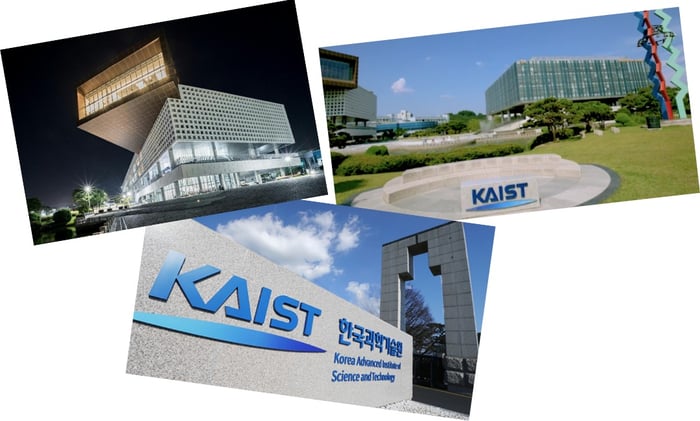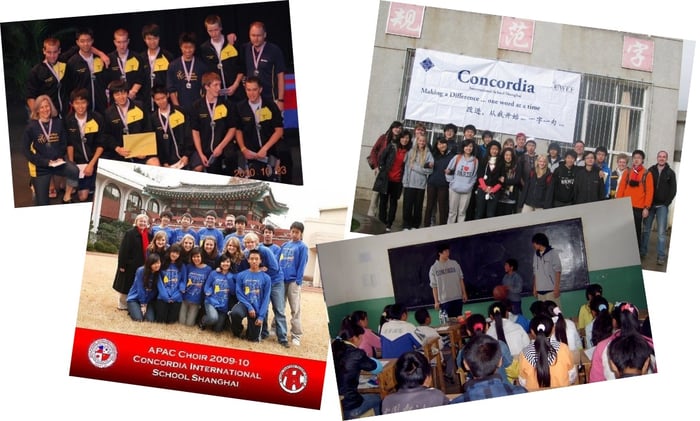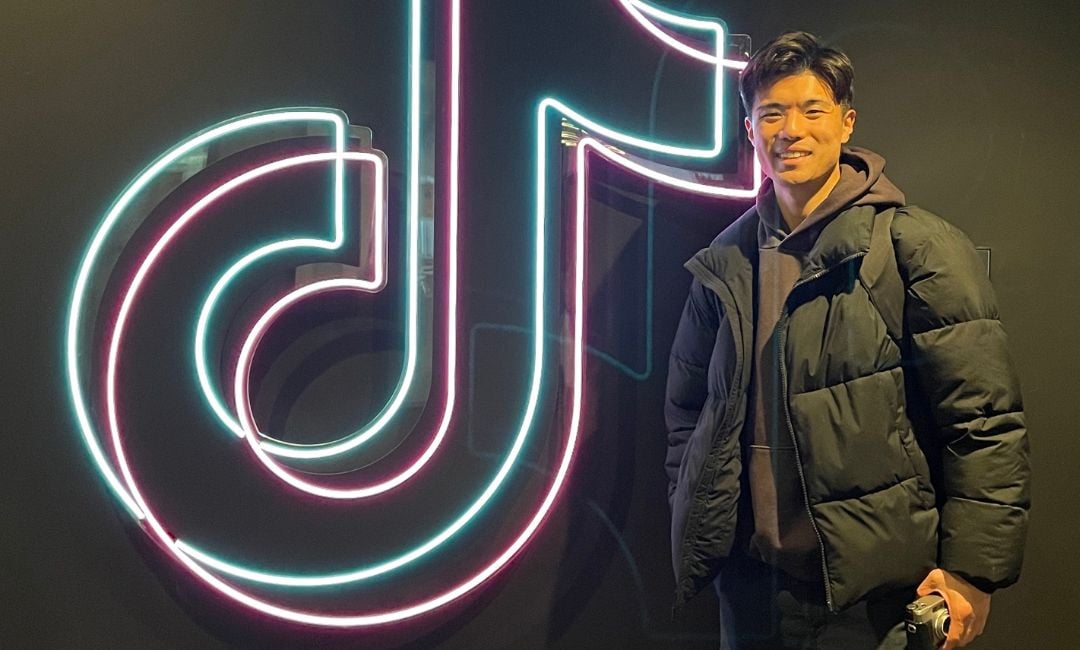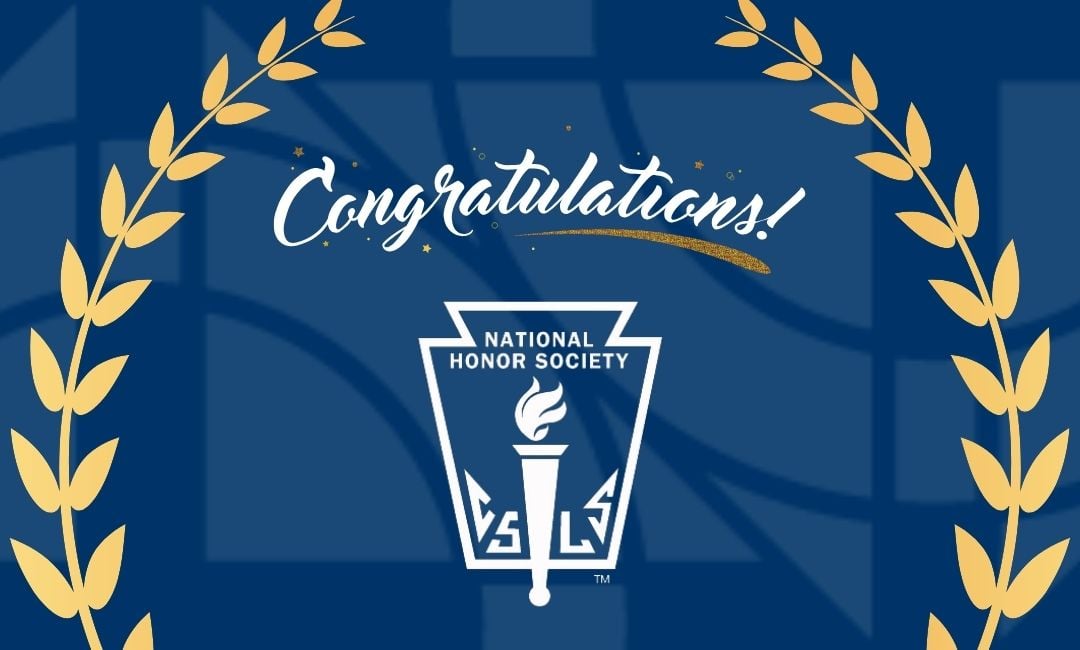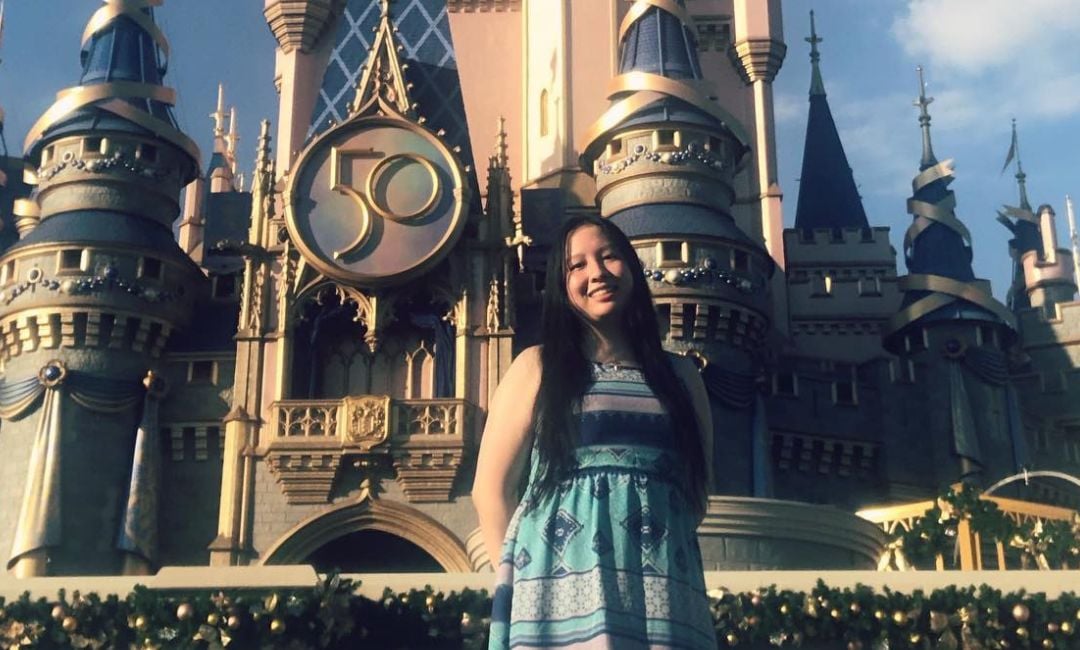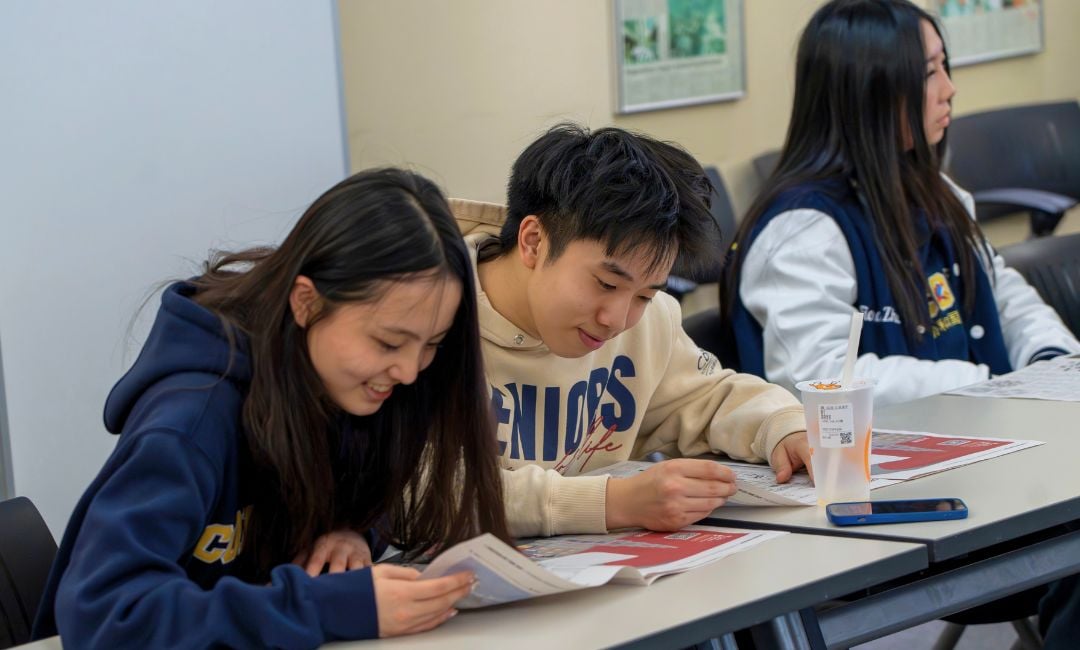Today, we share the story of Concordia alumnus: Han Sea Kim, a medical graduate who is currently completing his military service in South Korea. Having dreamed of being a doctor since childhood, Han Sea has been looking to answer the question: What makes a good doctor?
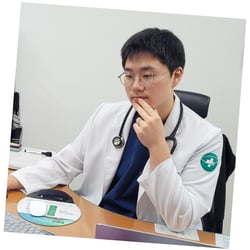 During the past years, he received American education at Concordia Shanghai, and studied at two of the top universities in South Korea (KAIST and Korea University). He has experienced life in both urban and rural areas, witnessed the gap between the rich and the poor, and the relationship between doctors and patients... Thanks to these diverse experiences, he has realized that a harmonious doctor-patient relationship lies in communication and the “best” doctor is ultimately one that takes the time to listen to a patient and manages his/her problems holistically.
During the past years, he received American education at Concordia Shanghai, and studied at two of the top universities in South Korea (KAIST and Korea University). He has experienced life in both urban and rural areas, witnessed the gap between the rich and the poor, and the relationship between doctors and patients... Thanks to these diverse experiences, he has realized that a harmonious doctor-patient relationship lies in communication and the “best” doctor is ultimately one that takes the time to listen to a patient and manages his/her problems holistically.
What are you working on recently?
Currently, I am in the middle of my military service, which started in March 2021 and will last until early April 2024. As a licensed doctor, I am doing my military service not as an infantry soldier, but as a public doctor in rural Korea. During this time, I have prepared for the US Medical Licensing Exam (USMLE) in order to try and apply for residency positions in America.
What is your takeaway from the experience of serving in the military?
The unique part is that I am basically living and stationed in a rural village located in Chungcheongnam-do (충청남도) that is very similar to the places that the Yunnan Education Project goes to, albeit a bit more developed than Dashanbao. The nearest convenience store is 10km away, everybody is older than 65-years old, and very few have finished elementary school. Due to the unique patient group characteristics, the biggest challenge is the low health literacy. Most patients refuse to go to a specialist for further evaluation and workups, and the clinic has no available diagnostic equipment other than a stethoscope.
From my time here, my belief in the importance of diverse experiences has only grown stronger. As a doctor, the doctor-patient relationship is crucial, and developing a strong relationship is made easier when there is common ground. Living diverse experiences is the easiest way to create a common ground with possibly anybody.
What is your aspiration as a doctor?
In the past, I was exceedingly ambitious and wanted to be the “best,” by working at a prestigious institution and garnering academic accolades. As I gained experience, my aspiration has vastly changed. Currently, I just want to do my best for my patients in my role as a primary physician. Emergency doctors, primary physicians, university professors, surgeons, etc. all play an important role in a patient’s health. The “best” doctor is ultimately one that takes the time to listen to a patient and manages his/her problems holistically.
What was it like studying medics at KAIST, a top university in South Korea?
Medical school in Korea has historically been a 6-year program right after high school. The educational policy changed so that from approximately late-2000s to about a few years ago, one could go to medical school after undergrad. This policy is almost closed now, from what I know, and a large majority of medical schools have reverted back to a 6-year program after high school.
I finished my undergrad at KAIST in Feb of 2015, and then went to Korea University’s medical school that March. At KAIST, as a Biological Sciences major, I was essentially a pre-med student. I am fairly certain that that experience is probably not too different from being a pre-med student in America: maintaining GPAs, extracurriculars, research, etc.
Any interesting stories about your daily life at KAIST?
A unique part of KAIST is the dormitories. Almost no university in Korea has enough dormitories to house the entire undergraduate student population. However, because of the spacious campus (one of the largest campuses in Korea), KAIST houses all freshmen, and almost all undergraduate and graduate students, in dormitories on campus. The living situation enables a closer bond between students, and may ultimately be an invisible catalyst for creative thinking.
It does also provide an entertaining view at 8:58AM when swarms of freshmen are seen racing downhill on their bicycles to try and make it to the 9AM class on time (Most have the same classes because freshmen are all “undeclared” majors until their sophomore year). It is also fun to remember that these same students are, without a doubt, the brightest and most creative students I have ever met.
How do you think your educational experience at Concordia helped you grow? Is there any Concordia faculty or program/project that promoted your interest in a certain area?
Concordia, and my 10 years there is probably a defining feature of my personal identity. Obviously, people’s teenage years are the formative years no matter where they are, but the Concordia experience was overall a truly positive experience. I am not sure if my experience relates as it has been more than a decade since I graduated. However, the small community experience (my graduating class was around 45 students, and the high school student number peaked at around 350 students when I was a senior) for the majority of my time there allowed me to dabble in all sorts of extracurricular activities such as sports, orchestra, theater, musicals, choir, MUN, and various academic societies. Spending so much time in all these various activities is something that is increasingly difficult after high school. There are no concrete metrics, barometers, or numerically quantifiable ways that can show how such activities have helped me grow as a person, but I can definitively state that they were an essential part of my growth.
Looking back, the English Department during my time there tremendously helped to round out my education. I was always a STEM-heavy student, but Mrs. Chandler and Ms. Bach helped me reach a decent writing and reading proficiency level. Communication (spoken or written) is required in all careers, and the bedrock of good communication is writing and reading.
Any advice to South Korean students who have similar international school backgrounds as you?
For the Koreans who have lived abroad for a long time, there will be a significant culture/societal shock should you decide to pursue an undergraduate education in Korea. There are definite pros and cons to studying in Korea, but most of the pros will unfortunately not be quantifiable except that it’s a much cheaper option than studying abroad in Hong Kong or America. In the long run, studying in Korea will probably be the best thing for your personal growth, but it will be painful.
For the Koreans who have not lived abroad for a long time, maximize your English proficiency. If you choose to go to America, you’ll need it anyway. If you choose to come to Korea, this country has an obsession with English that you can easily take advantage of. Also, there is a colossal discrepancy in the amount of information available in any topic or field in the world. Being comfortable with English will always prove to be an advantage, even if it’s for planning a vacation.
In general, try to experience as much as you can during your time in high school. Yes, academics are important, but constantly studying and doing nothing else is harmful in the long run. Developing long-lasting friendships, experiencing new activities, taking advantage of the school’s wide array of resources is a privilege that will end after high school—especially if you go to school in Korea.
Thanks to Han Sea for sharing his experiences to inspire Concordia students.
If you are interested in sharing alumni updates or stories, please contact our Alumni Relations Coordinator Irrey Zhang at alumni@concordiashanghai.org
